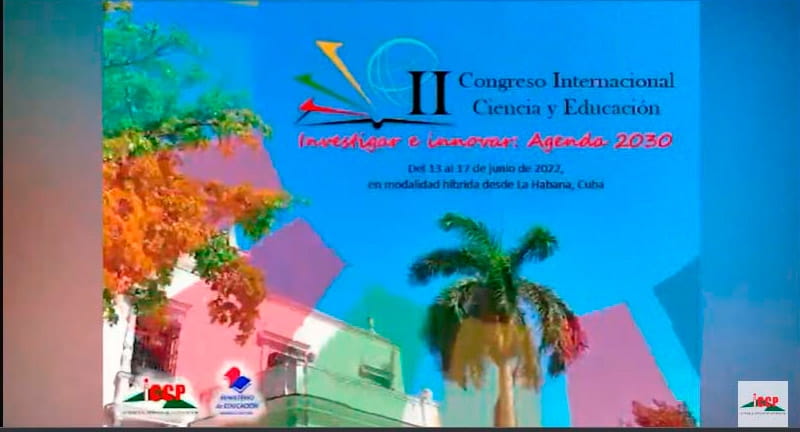
The II International Congress of Science and Education began
Under the slogan "Research and Innovate: Agenda 2030" it will meet in Havana and its essential topics are inclusive, equitable and quality education, postgraduate challenges and science in social transformation
"Human nature does not produce all men exactly the same. There is only one thing that can make all men more or less equal, there is only one way to make all men alike and that means is education" Fidel Castro
With the participation of more than 1,600 professionals from 13 countries, the II International Congress of Science and Education began this Monday in Havana.
Under the slogan "Research and Innovate: Agenda 2030" it will meet until June 17, and its essential topics are challenges for sustainable development, and the role of science in social transformation and local development.
The opening words of the conclave were pronounced by the head of the Cuban Ministry of Education (Mined), Dr. C Ena Elsa Velázquez Cobiella, who began her speech evoking with gratitude and respect the outstanding Cuban intellectual, pedagogue and revolutionary Armando Hart Dávalos, to purpose of fulfilling, this June 13, the 92nd anniversary of his birth. Hart was the first Minister of Education of the Republic of Cuba, and directed the Literacy Campaign, recognized as the largest and most effective carried out in Latin America.
The inaugural conference "Science and Education for sustainable development" was given by Dr. C Silvia Navarro Navarro, president of the organizing committee of the event and director of the Central Institute of Pedagogical Sciences of Cuba (ICCP).
As a special guest that honors the congress, Josué Habacuc Villagómez, director of the Ecuadorian Network of Pedagogy, attends. Also present were Mined directors, ICCP researchers, delegates and participants in the event.
Convened by the ICCP of the Mined, the meeting, which will meet in a hybrid way (virtual and face-to-face), will promote the exchange between professionals from different areas of knowledge and teachers on the role of science for the fulfillment of global goals, expressed in the 17 goals of sustainable development.
The attendees present their work in three symposiums that deal with educational systems from an inclusive, equitable and quality perspective, postgraduate education and its challenges for sustainable development, and the role of science in social transformation and local development. .
They can also participate in six pre-congress workshops and courses that include various topics, from the proposal for a Systematization of educational scientific activity for early childhood development, the socio-educational inclusion of children and adolescents with disabilities, attention to talent in the Cuban educational system, research and innovation in the education of young people and adults in the country, as well as innovative experiences in the distance study modality in postgraduate education and master's degrees in Cuba.
In room 1, the first course that dealt with the Transcendental Early Childhood took place. Systematization of educational scientific activity for its development, which offered a periodization of the stages, functions of this educational level based on scientific research that was applied to teaching in the country.
This Tuesday's day reserves the conferences "Cuba in UNESCO, within the framework of the 30th Anniversary of the Program of Chairs", by Lic. Dulce María Buergo Rodríguez, president of the Cuban Commission of UNESCO; "Research in the III Improvement of the National Education System in Cuba", by the director of Programs and Projects of the Central Institute of Pedagogical Sciences, Dr. Cs. Alberto Valle Lima, and the conference "The urgency of confronting cultural colonization", by Abel Prieto Jiménez, president of Casa de las Américas.
A special moment will be the delivery of a recognition to the Ministry of Education of the Republic of Cuba, for the results of the internationalization of education. The award will be received by the Cuban Minister of Education, Dr. C. Ena Elsa Velázquez Cobiella, from Josué Habacuc Villagómez, director of the Ecuadorian Network of Pedagogy.
See what happens live from the official page of the II International Congress of Science and Education.